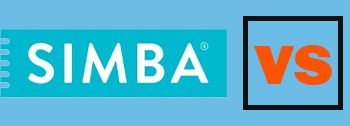Alcohol is a popular choice for people who have trouble sleeping. You can soon find yourself nodding off on the sofa. However, while alcohol can make you sleepy, it negatively affects the quality of sleep you get.
In this article, we’ll talk about;
- What makes you sleepy when you drink alcohol
- Drinking alcohol and its effects on sleep
- How to sober up quickly
The science behind alcohol making you sleepy
When drinking, the effects of alcohol kick in fast, around 20 minutes fast. This is because alcohol has small molecules, so it gets absorbed into the bloodstream quickly. It easily reaches the neurons after quickly jumping over the blood-brain barrier. That’s why if you notice, you’ll get “sleepy” and “drowsy” quickly.
Alcohol targets protein molecules, including the GABA receptors. GABA or gamma-aminobutyric acid is a chemical molecule in the brain that triggers a calming effect. This helps in easing the nerves when it comes to anxiety, fear, or stress. It is the neurotransmitter that helps induce the body to sleep.
Alcohol amplifies the effect of GABA, making you feel more relaxed, sedated, and sleepy. This will manifest as you having motor incoordination, inability to concentrate, or be mindful of what they are doing. The rate that the effects of alcohol will show to your body depends on your alcohol tolerance. The higher your alcohol tolerance is, the more time it will take for these effects to show.
While alcohol may make you sleepy, the later effects are detrimental to your health. This is because it will affect the quality and quantity of sleep that you will get. This is why you’re heavily advised not to drink heavily regularly, as it will affect your sleep patterns and how you perform during the day.
Alcohol and sleep
While the immediate effect of alcohol on your body is to induce it to sleep, it can affect the quality of your sleep later on. Moreover, suppose you regularly consume more than the UK Chief Medical Officers low-risk drinking guidelines, which are 14 units a week. In that case, you increase the chances of messing up your sleep cycle, making you feel like you didn’t get a wink of sleep at all.
Alcohol has disruptive effects on the sleep cycle. This has been scientifically investigated; in particular, research has concluded that alcohol targets sleep-wakefulness, increasing the chances of interruptions while you sleep, in the form of you waking up constantly. One main reason why alcohol causes disruptions to sleep is that it is a diuretic.
As a diuretic, alcohol stimulates your body to produce more liquids. This explains why you need to go to the bathroom to flush out all the alcohol you drunk. This is also why you are incredibly sweaty after a night of drinking. These two effects of needing to take frequent trips to the bathroom and sweating will wake up your body.
Moreover, alcohol prevents your body from reaching the REM stage, the deepest sleep stage. This, in turn, prevents your body from getting the benefits of deep sleep, such as energy restoration, cell regeneration, and turning short-term memory into long-term ones. This is also why consuming too much alcohol before going to bed equals poor quality and less sleep.
How to sober up fast
If you’ve found yourself waking up feeling groggy after a night of sleeping and in need of sobering up fast, here are some ways that you can take to reverse the effects of alcohol. While there is nothing you can do to force your blood alcohol concentration (BAC) levels down, there are things that you can do to make yourself more alert and appear soberer.
There is no truth to getting rid of a hangover quickly. However, you should be careful in following myths that present risks and may result in accidents. Such as the belief of doing a handstand to shake off the hangover or taking a cold shower.
Handstands can be extremely dangerous, especially when you are intoxicated. Similarly, there have been instances of people going into shock or losing unconsciousness when taking cold showers when drunk. The methods outlined here present little to no risk to your health.
- Drink coffee.
Drinking coffee is the most popular and easiest way to combat the effects of alcohol. Coffee is very high in caffeine, which is the opposite of alcohol in terms of effect. Caffeine is an upper, while alcohol is a downer.
Caffeine stimulates the body to have increased blood pressure and heart rate. It combats tiredness and drowsiness, which are the lingering effects of drinking. Caffeine will also make you feel more alert and help you concentrate.
- Sleep.
The best way to sober up fast is to let time lower down your blood alcohol levels naturally. When you wake up with a hangover, hydrate your body, eat some food, and then get back to sleep. The time spent sleeping will let your body rest and recover while your BAC goes down naturally.
- Eat and drink water.
You want to hydrate your body after an hour of drinking. This is why eating and drinking helps. Popular hangover foods are incredibly salty because salty food increases thirst, which means you should drink more water. To help your body recover, you need to hydrate it.
- Don’t drink too much.
The best way to sober up is to ensure that you don’t even need to sober up in the first place by preventing yourself from drinking too much to the level of intoxication. The best way to sober up is not to be too drunk at all. While this may sound somewhat counterintuitive, taking things in moderation is always a good idea for taking good care of your health.

 Nectar Mattress
Nectar Mattress 


